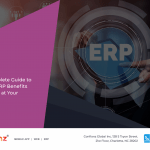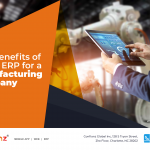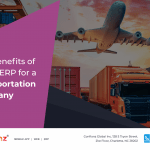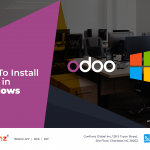Choosing to implement an ERP is a big decision for a company. Along with the time, energy, and resources that ERP implementation requires, the process can be costly. Unexpected costs can be a substantial financial strain if businesses aren’t prepared and haven’t budgeted accordingly.
Unfortunately, like many elements of an ERP, the price of implementation varies wildly from company to company and system to system. That’s why we’ll break down the most significant variables that can affect the cost of implementing an ERP.
6 Factors That Affect the Price of ERP Implementation
Whether you’re changing ERPs or implementing one for the first time, there will be factors that consistently affect the price.
The cost of ERP implementation can range from nothing if you’re a one-person operation using open-source software to millions of dollars for mega-corporations. Here are the six most significant contributing factors in assessing where your company lies on the continuum.
- The size of your company
An ERP implementation is not a one-size-fits-all project. The size of your company is a significant factor in determining the cost of ERP implementation. The larger the company, the more complex and expensive implementation becomes.
This is because there are more employees to be trained and integrated into the system and more business processes to be tracked.
The size of your company will also impact which type of ERP solution you need. For example, smaller companies may only need an ERP for a specific department or process. In contrast, larger companies will require an ERP for all departments and procedures to streamline operations.
In general, small businesses should opt for a less expensive solution such as cloud-based software or online solutions that are easy to use.
- Your industry
Even if your company is small, specific industries have more costs associated with ERP implementation than others. This is because some industries require more features and applications than others. As a result, the price of the apps (if you’re using a modular ERP) and the work it takes to transfer information will increase depending on your industry.
For instance, if all you need is an accounting system and payroll, implementation will be cheaper than if your business needs to manage complex supply chains, warehouses, or any other complicated business processes.
This is something to keep in mind when choosing an ERP. If you don’t need all the features that a pre-built solution comes with, you should check out modular ERPs to save money and time.
- Support and training
Often ERPs will come with some support and training, but not always. Frequently this service is a pricey add-on.
If you’re not willing to pay for the ERP’s training, you need to ask yourself a few questions.
Do you have someone on staff who can oversee implementation? If you do, you’ll need someone who can take over that person’s duties while they learn the ins and outs of the ERP and train others. But, again, this is only a good option if you’ve chosen a relatively simple ERP.
If you don’t have someone in-house, or the ERP you’ve chosen is particularly complex, you will need to bring in outside help. Keep in mind that consultation fees can get expensive quickly. Low-end pricing can easily be $100 an hour.
- Level of customization
For most companies, an ERP won’t be a perfect fit right out of the box. Therefore, customization is an integral step to successful ERP implementation.
Customization can include modifying the existing system to suit a company’s needs, adding new modules or functions, or changing the UI and interface. Customization of ERP software is not just about adding new functionalities and modules to the system. Customization can also be about changing the look and feel of the application.
Naturally, customization affects the price of ERP implementation. The more customization a company requires, the higher the price will be.
The price depends on how much customization is needed and the type of customization. For example, if a company wants to change the color scheme or add some graphics, this would cost less than making changes to the core functionality.
- The ERP you choose
The ticket price of an ERP is only one thing to consider when considering the overall cost of the ERP you choose.
There are three types of ERP: on-premise, hosted, and cloud.
- On-premises is when the company installs the software on its servers and manages it internally.
- Cloud-based is when the company rents space from a third party to store their data online.
- Hybrid is when a company uses both on-premises and cloud-based solutions to run its business smoothly.
On-premise ERPs are the most expensive upfront because they require more installation resources and time. On the other hand, hosted and cloud-based ERPs are cheaper initially because they don’t require installation costs or maintenance fees.
In general, small businesses should opt for a less expensive solution such as cloud-based software or online solutions that are easy to use.
- Your timeline
As with most things, you’ll have to pay if you want it fast. ERP implementation is a long and detailed process that can take six months to a couple of years, depending on the size of your operation.
If you’re working on a tight schedule, you’ll need to hire more developers and pay extra for overtime or weekends, depending on how tight your schedule is.
Takeaways
While an ERP system will save you time and money in the long run, the initial implementation has many upfront costs. One of the most important things to realize when budgeting for a new ERP is that there are going to be unforeseen costs. So if you’re looking at a system that’s right on the edge of your budget, you might want to reevaluate and go with one that provides more wiggle room.
Want to know how much will it cost for a successful Odoo implementation for your business?
If you want to dive into the world of ERPs, we have plenty of resources that detail the pros and cons of different systems. Confianz Global Inc. North Carolina’s multi-award-winning ERP implementation company delivers fully integrated software services to meet the unique needs of individual startups, small, and medium-sized businesses.
If you’re looking for more personalized consulting, call us today!
